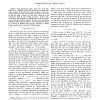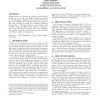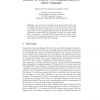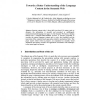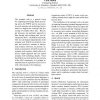1044 search results - page 6 / 209 » A Fuzzy Semantics for Semantic Web Languages |
FUZZIEEE
2007
IEEE
14 years 1 months ago
2007
IEEE
— Fuzzy Description Logics (fuzzy DLs) have been proposed as a language to describe structured knowledge with vague concepts. It is well known that the choice of the fuzzy operat...
SEMWEB
2001
Springer
13 years 12 months ago
2001
Springer
Although RDF is considered the Semantic Web language, it may not be the only one. SOAP serialisation provides several advantages, especially if the Semantic Web is not just about ...
ER
2006
Springer
13 years 11 months ago
2006
Springer
One of the main drawbacks of the Semantic Web is the lack of semantically rich data, since most of the information is still stored in relational databases. In this paper, we presen...
AIMSA
2004
Springer
14 years 29 days ago
2004
Springer
Internet content today is about 80% text-based. No matter static or dynamic, the information is encoded and presented as multilingual, unstructured natural language text pages. As ...
INLG
2010
Springer
13 years 5 months ago
2010
Springer
The semantic web is a general vision for supporting knowledge-based processing across the WWW and its successors. As such, semantic web technology has potential to support the exc...
